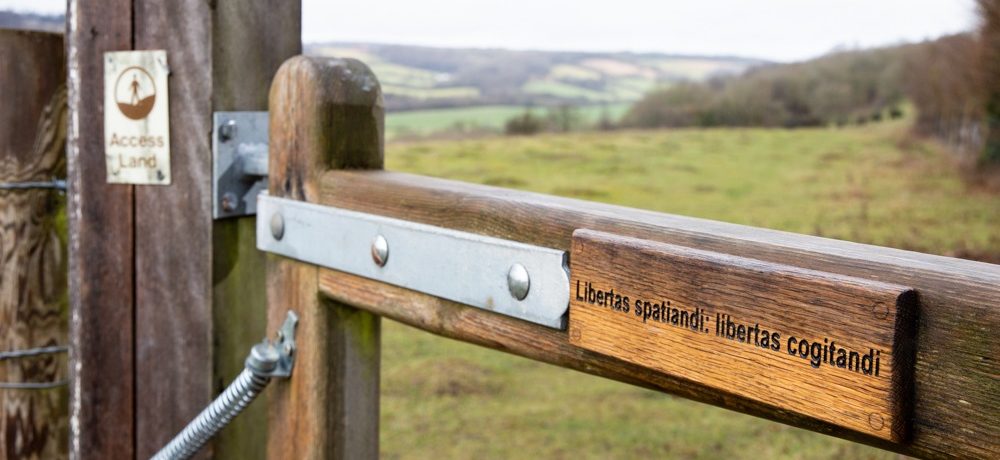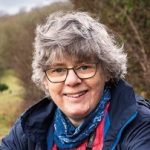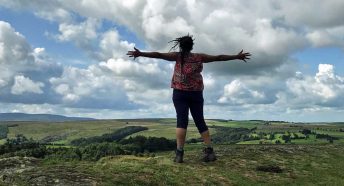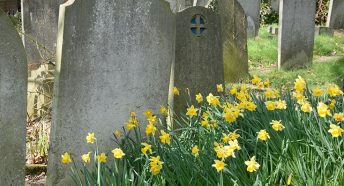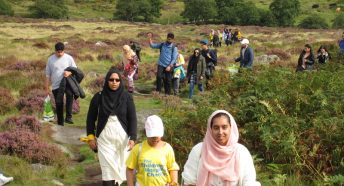Kate Ashbrook on the importance of access to the countryside
Access campaigner Kate Ashbrook on the joys of walking and the importance of making everyone feel welcome in the countryside.
You’ve helped open up walking routes for many – so what makes a good walk?
I’m not someone who needs a pub along the way. I always love good scenery, with some variety, and especially birdsong – which means walking on my own a lot. I’ve been learning birdsong for some time and it’s hugely rewarding.
Walking is great for thinking things out. If I’ve got to write an article or prepare something, I can do it on the walk. I have the best ideas when I’m out walking. I talk to myself sometimes, which is embarrassing if I meet people! I’m always glad to go on a good walk with a few friends, or to join local Ramblers’ groups on their walks, too, but that’s a different kind of experience: talking and listening.
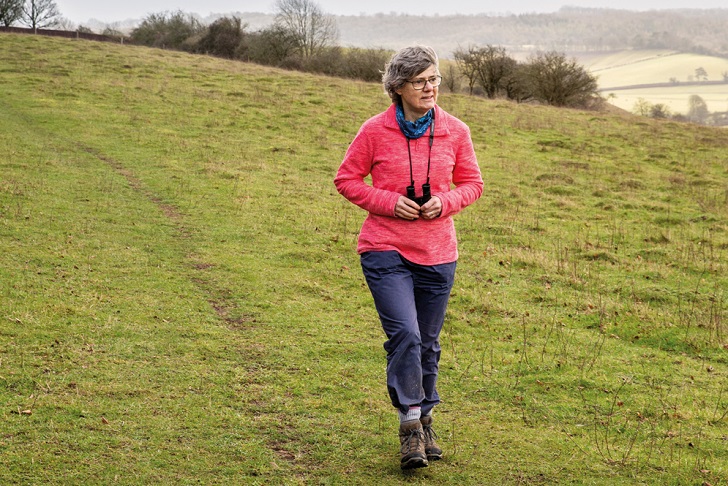
Good paths also help, though if I find a blocked path it’s not going to put me off. It’s important to report it, and I urge everyone to do this. The local authorities need to know where the problems are, even if they don’t have the resources to deal with them immediately. At least then they’ve got a list they can take to councillors to argue for more budget because there’s a backlog.
Is it always going to be a challenge to balance the different interests of landowners, farmers, and leisure users of the countryside?
I suspect so. Obviously we should expect visitors to behave well and not drop litter or start fires. But equally, if farmers and landowners haven’t kept paths waymarked, clear and obvious, it’s not surprising that people wander about in search of the route – and in fact, they’re entitled to, if the path is blocked. That’s not trespassing, that’s just exercising our common-law right to find an alternative route.
Some of the reactions we saw during lockdown were over the top: people putting up nasty signs and so on. There are still plenty of landowners who are trying to deter people from walking on rights of way by putting up CCTV cameras and wrought-iron gates. These people aren’t living in the countryside to be social; they’ve moved there to carve out their bit.
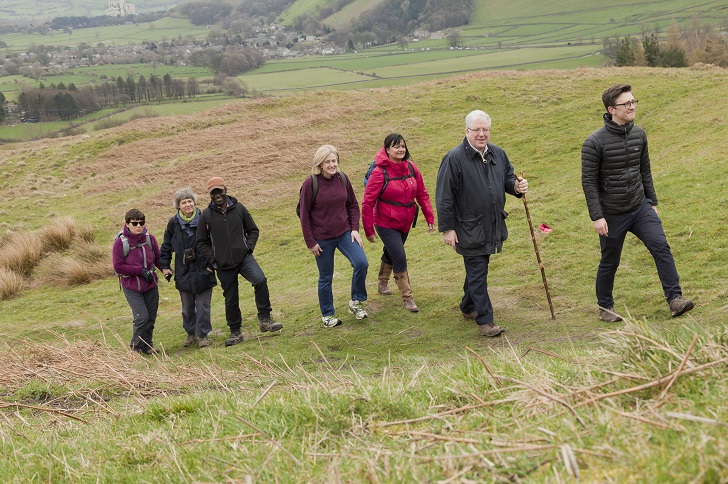
That’s why I’m nervous about the Police, Crime, Sentencing and Courts Bill and am keeping a close watch on what is going to happen there. Even if it doesn’t apply to innocent walkers, which we sincerely hope it won’t, it could create a hostile attitude in the countryside. It could embolden landowners to say, ‘get off my land, you’re trespassing, it’s a criminal offence,’ even when it’s not.
We should all welcome people into the countryside, for their own good and for the countryside’s good, not least because they spend money and help the rural economy.
Do you always encourage people to get out and explore – to make the most of all the work that’s been done to defend and map these places?
Definitely! And it’s all on the OS [Ordnance Survey] map, where a yellow wash means you’ve got a right to roam freely. However, it doesn’t guarantee that there’s a way in, and that’s one of the problems with the Countryside and Rights of Way (CRoW) Act. You can have isolated areas of access land that you can only reach by parachute, which is frustrating. That’s another campaign to be fought, about proper access points.
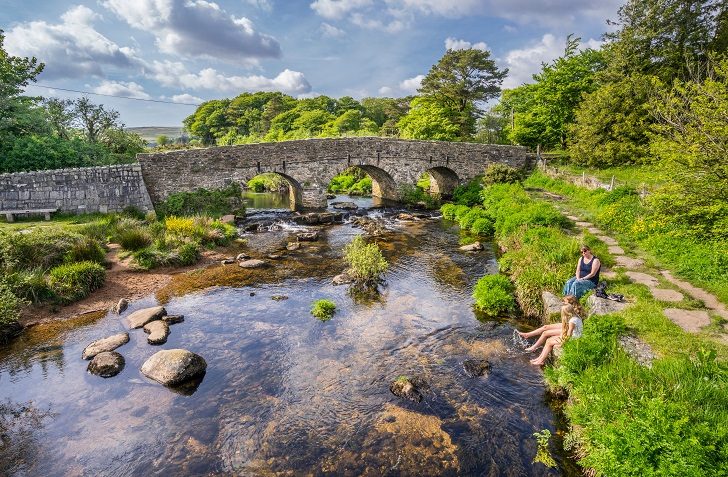
Do you have any favourite walking routes that you’d care to share?
Well I do love Dartmoor. I still stay at Hillbridge Farm. I cross the River Tavy and climb up onto the top of White Tor, and do a loop back down to the valley through woods. It’s about a two-hour walk, and it takes me in a circle, with moor and river and views right across to Cornwall. It’s just heavenly.
I live in the Chilterns, right in the heart of the AONB, and can walk out of my door onto a chalk hill to which we won partial access under the CRoW Act. There are lovely gentians and orchids there. So I’m really lucky to be here.
Do you think the past year’s lockdowns have taught us to appreciate the countryside more?
Absolutely. But I think outdoor organisations need to figure out how to make it into a lasting appreciation, not just a short-term thing. Government must also recognise the new popularity of public paths and their value to health and wellbeing, and make sure there is funding for paths, access and open spaces.
If you were in charge of the government’s rural policy, what would you change?
I would start with the funding regime. I would say: look seriously at the cost savings to NHS, from people being able to get outside for their physical and mental health. We need to be putting more of that money into our green spaces.
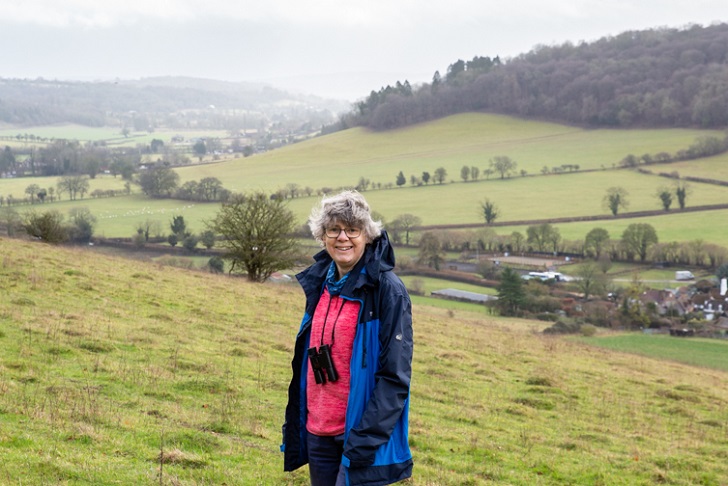
Kate Ashbrook is general secretary of the Open Spaces Society, patron of the Walkers Are Welcome Towns network, and a former chair of the Ramblers and Campaign for National Parks. Read Kate’s latest news and find a wealth of campaigning information at CampaignerKate.
A version of this article was originally published in CPRE’s award-winning magazine, Countryside Voices. You’ll have Countryside Voices sent to your door three times a year, as well as access to other benefits including discounts on attraction visits and countryside kit from major high street stores when you join as a CPRE member. Join us now.
